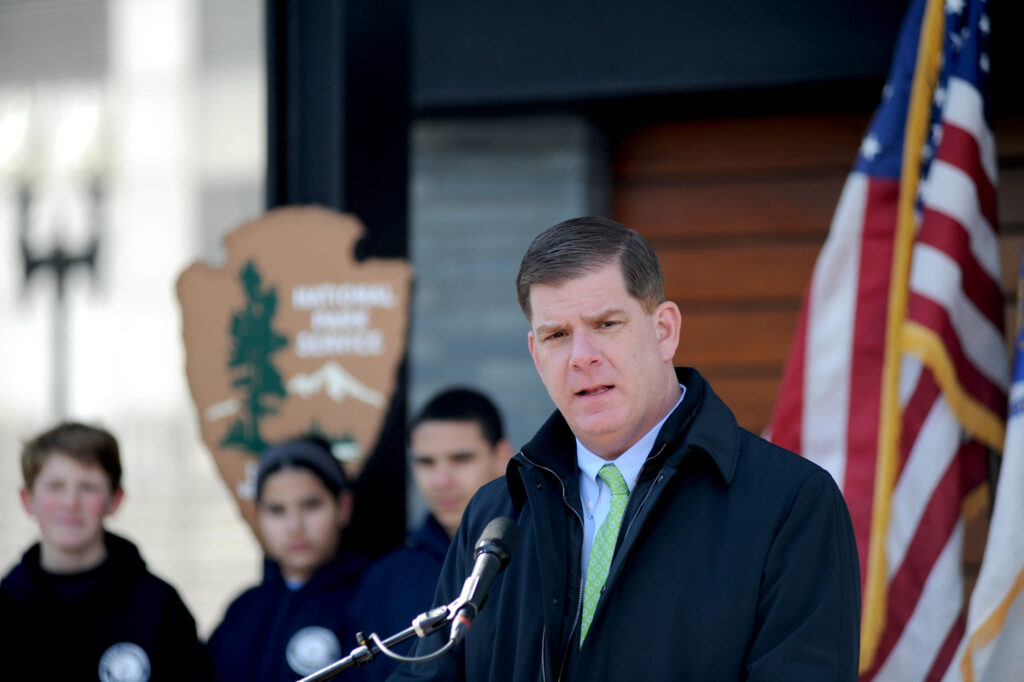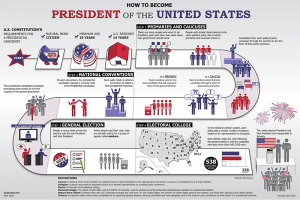Later Marty, Enjoy DC

Mayor's Office photo by Don Harney via flickr
President-elect Joe Biden choosing Boston Mayor Marty Walsh for anything in his cabinet felt like a terribly kept secret. Walsh is the mayor of a major city and they’ve been buddies for years—I would have been flabbergasted if he was left in Boston. On paper, the son of Irish immigrants is a former union leader, so a Secretary of Labor nomination tracks. The thing is his mayoral legacy is a complex affair to look back on.
There’s always going to be the idea that Walsh sold the city at every turn. This is not only about the Boston 2024 Olympic bid, but that chapter of his mayoral career showed an aspiration for grandeur. In a nutshell—Boston’s gatekeepers put together an effort to bring the Olympics to the city. Walsh was all for it, then citizens protested because they’d be paying for it, amongst other issues. The anti-Olympic public pressure boils over, so the Mayor ends the bid.
An important note here: the public pressure got him to end it. This wasn’t some sort of grand revelation that got Walsh to change. We all knew that the tax of this was on Bostonians to pay for, from the beginning. He also clearly read the tea leaves: in a couple of years, someone could take his title if the bid succeeded. In turn, he made a move that helped him control his fief.
A fief with condos popping up everywhere and housing prices sky-rocketing. Walsh was once considered a working-class advocate, but over his run as mayor, he’s shown a favorable eye towards business, probably expecting a trickle-down effect. Remember the General Electric Deal? Or dalliance for Amazon’s HQ2? If you saw an empty lot one week, it was gone the next, replaced with a sign about new housing development. Look at the Seaport District.
The Dorchester native did not start the construction boom, but he hasn’t put the breaks on it either—he’s just letting it run its course. Even with measures in place to provide balance, like the choice for developers to provide affordable housing or put cash in an affordable housing fund, it doesn’t get at the issue in full. The choice shows a belief that the amount of money being generated will eventually get to those who need it, in some form or another. Has it? The judgment is still out. The city’s housing crisis is older than the COVID-19 pandemic, and although Walsh has worked to get eviction protections for tenants, it does not solve the overall issue: for some, Boston is more expensive than it’s worth. Affordable housing is a delicate balance that Walsh has strived for, but never truly leveled out.
We can go on and on about his faults, from failing to provide long-lasting 24 hour MBTA service (a campaign promise) to links with corruption cases, but that wouldn’t provide the full intricate image. For starters, the Boston College grad has been a consistent and loud supporter of education at every turn. From increasing access and funding to pre-kindergarten programs and special education being dedicated next to a quarter of the Boston Public School budget to the recent move for free community colleges in the city for low-income city public school graduates, Walsh has always invested in Boston’s youth.
Also, he hasn’t been too shabby about job creation, getting the Boston unemployment rate to 2.6% in 2019, down .3% from the state average. The Mayor has better-funded job training programs and worked on access for low-income residents towards said programs and union apprenticeships. Just as importantly, he’s worked to get wages raised and protected.
In other words, Walsh is a good fit for Biden’s cabinet nomination and not another Ben Carson. Granted, he’d be an interesting selection even if he were still just a construction union leader, similar to plumber Martin P. Durkin under Dwight D. Eisenhower. Being Mayor of Boston raised his political profile, but more importantly, taught him how to weather scandals, lead at a bigger scale, and work on balancing the wishes of corporations and the people. His selection indicates a shift towards workers’ rights, as the Trump administration cut a lot of workplace protections. He already has the backing of several major national unions, including the AFL-CIO, whose leader Richard Trumka said Walsh “has always been a fighter who understands the power of working people standing together for a better life.”
Now, he doesn’t have the job just yet—there’s the confirmation hearing to get through and I expect it to be interesting. Congress members could push for answers on why three of his aides have been convicted on corruption charges. Walsh’s seven years produced judgments on union intimidation and bribery charges. Even though two were thrown out, there was still enough evidence to ask questions on what was going on in city hall. I expect some Senator to make a mob boss comment, as an analogy for Walsh’s ties to the local union and his continued support.
Like I said earlier, Marty Walsh is leaving a complex legacy—he tried to build a future for the city every way he could, for better or worse. After Kim Janey, his elected successor, whether it be Michelle Wu or Andrea Campbell, will not be cleaning up a mess, but guiding the city in a new direction that builds on the good and tries to find solutions to the issues at hand. It’s a tough job, but someone has to do it.



